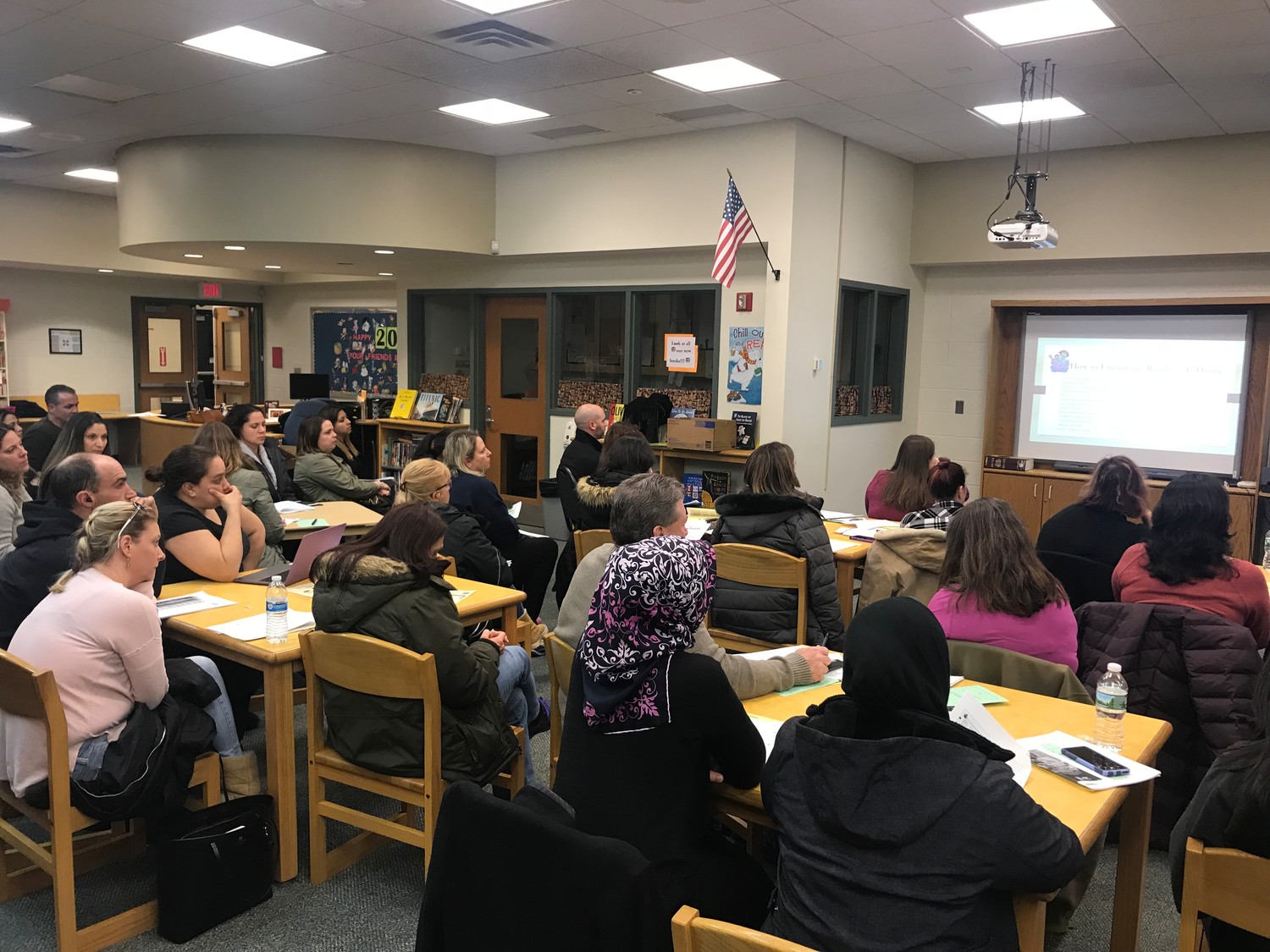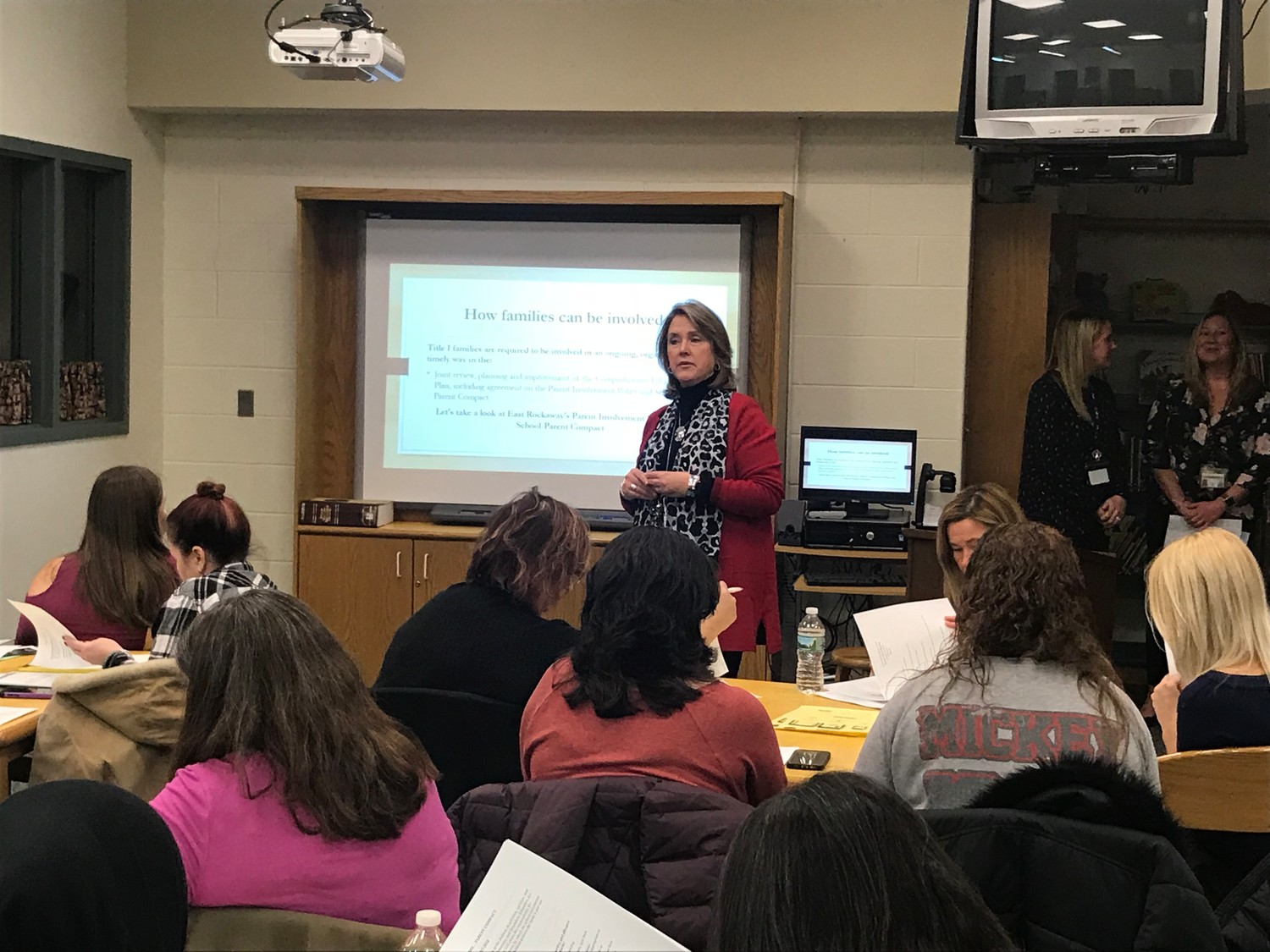Federal program helping shape young East Rockaway minds in reading, mathematics
About 50 parents filled the Centre Avenue School library for the East Rockaway School District’s annual Title 1 presentation on Jan. 24. At the event, reading and math specialists informed parents of the help being given to struggling students.
Mona Hecht, East Rockaway’s assistant superintendent of curriculum and instruction, explained that under the Title 1 Program, the district receives federal funds to provide academic support to students through programs, resources and services.
Reading specialists in attendance included Ashley Tener (Centre Avenue), Danielle Schaetzle (Centre Avenue), Michelle Rodgers (Rhame Avenue) and Sherina Lugo (both buildings). They said student performance is constantly being monitored, including their successes and struggles in math and reading assessments.
“Administrators and specialists look at it, review and analyze it all,” Schaetzel said. “After they look at it, they make the decision as to whether or not students are making adequate or inadequate growth.”
The panel explained that students in the district are divided into three tiers. Each student receives Tier 1 education, but some need extra attention. Tier 2 students are those who require extra help in the classroom with their teacher, and sometimes a specialist, for about 20 minutes per day. Tier 3 is more in-depth, and takes students out of the classroom to learn alongside about five of their peers and a specialist five times per week.
To help keep students from struggling, the specialists recommended that parents have students in kindergarten through third grade read books more than once in order to become familiar with the vocabulary. In addition, they suggested that parents implement the five-finger rule, which means that if a child cannot understand five words on a page in the book, they should not read it.
For students in grades four through six, the panel recommended that parents encourage them to read aloud so that it can be determined if they are reading fluently. Also, they said, children should be encouraged to read at home and to compare what they are reading to other books they have completed in a particular genre. Parents were also told to ask their children questions about what they are reading so that they can better understand the material, and to urge them to take a break if they become frustrated.
Math specialists Katie Kuck (Centre Avenue) and Jack Bixhorn (Rhame Avenue) also spoke at the event. Kuck said that just like reading, math also has three tiers of learning. “If your child is currently receiving services, it doesn’t mean that they always have to,” Kuck said, “or, if they’re not receiving it right now, that they can’t in the future.” She added that children are constantly being implemented into programs, and likewise graduating from them.
Bixhorn said that keeping math fun is the most important part of early learning, whether it is using a deck of cards, dice or generating random numbers on a computer. “The silliest little things, for whatever reason, for little kids, make them think it’s a game and makes them want to do math,” he said. “And I found that just the simplest things really can change kids’ attitudes.”
Bixhorn and Kuck then showed an example of the types of games they play in class. Many of them can be found at mathplayground.com, which divides the activities by grade level.









